March 2, 2020
With an influx of the Coronavirus being reported throughout the world we want to provide you with some information about the illness, as well as important precautions to take in order to protect yourself, the workplace and prevent the unnecessary spreading of the virus. The information below can be found at www.cdc.gov.
Coronaviruses are a large family of viruses that are common in humans and many different species of animals, including camels, cattle, cats, and bats. Rarely, animal coronaviruses can infect people and then spread between people, such as with MERS-CoV and SARS-CoV. The virus that causes COVID-19 is spreading from person-to-person in China and some limited person-to-person transmission has been reported in many countries outside China, including the United States. Besides coronaviruses, respiratory illnesses like seasonal influenza, are also currently widespread in many US communities.
Important precautions to take:
Stay at home if you are sick – employees who have symptoms of acute respiratory illness are recommended to stay home and not go to work until you are free of fever (100.4° F or 37.8° C; it may be slightly greater if using an oral thermometer), signs of a fever, and any other symptoms for at least 24 hours, without the use of fever-reducing or other symptom-altering medicines (e.g. cough suppressants). Employees should notify your supervisor and stay home if you are sick.
CDC recommends that employees who appear to have acute respiratory illness symptoms (i.e. cough, shortness of breath) upon arrival to work or become sick during the day should be separated from other employees and be sent home immediately. Sick employees should cover their noses and mouths with a tissue when coughing or sneezing (or an elbow or shoulder if no tissue is available).
Wash your hands often with soap and water for at least 20 seconds or with an alcohol-based hand sanitizer that contains at least 60-95% alcohol. Soap and water should be used preferentially if hands are visibly dirty.
Routinely clean (with disinfectant wipes) all frequently touched surfaces in the workplace, such as cellphones, workstations, doorknobs, keyboards, remote controls, desks, and countertops. Use the cleaning agents that are usually used in these areas and follow the directions on the label.
No additional disinfection beyond routine cleaning is recommended at this time.
Employees who plan to travel should take certain steps:
- Check the CDC’s Traveler’s Health Notices for the latest guidance and recommendations for each country to which you will travel. Specific travel information for travelers going to and returning from infected countries, can be found at on the CDC website.
- Check yourself for symptoms of acute respiratory illness before starting travel and notify your supervisor and stay home if you are sick. If you become sick while traveling or on temporary assignment understand that you should notify your supervisor and promptly call a healthcare provider for advice if needed.
Additional Measures in Response to Currently Occurring Sporadic Importations of the COVID-19:
- Employees who are well but who have a sick family member at home with COVID-19 should notify your supervisor and refer to CDC guidance for how to conduct a risk assessment of their potential exposure.
- If an employee is confirmed to have COVID-19, employers should inform fellow employees of their possible exposure to COVID-19 in the workplace but maintain confidentiality as required by the Americans with Disabilities Act (ADA). Employees exposed to a co-worker with confirmed COVID-19 should refer to CDC guidance for how to conduct a risk assessment of their potential exposure.
Planning for COVID-19 influx in the US:
The severity of illness or how many people will fall ill from COVID-19 is unknown at this time. Many experts are stating that the most important recommendation is to not panic but be prepared. If there is evidence of a COVID-19 outbreak in the U.S., visit the CDC site for more information and we will provide more updates based from the government and CDC.
Caelum will adjust our policies according to CDC recommendations and the severity of the situation. For the general American public, such as workers in non-healthcare settings and where it is unlikely that work tasks create an increased risk of exposures to COVID-19, the immediate health risk from COVID-19 is considered low.
The CDC and its partners will continue to monitor national and international data on the severity of illness caused by COVID-19, will disseminate the results of these ongoing surveillance assessments, and will make additional recommendations as needed.
Identify possible work-related exposure and health risks to your employees. OSHA has more information on how to protect workers from potential exposures external icon to COVID-19.






Leave a Reply